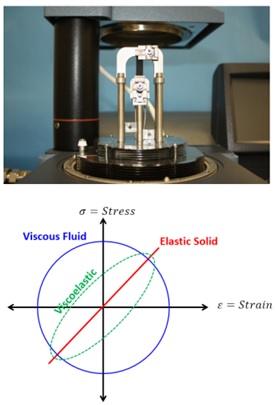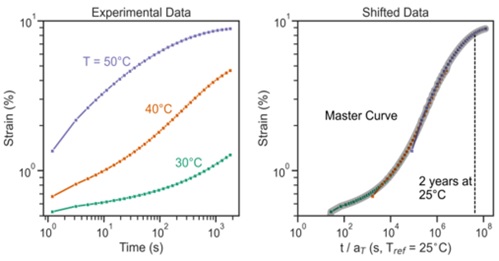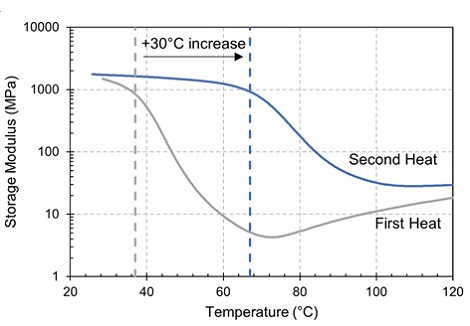
Advanced DMA Methods: Using Time-Temperature Superposition
Free, One-hour Webinar
In this free, one-hour webinar, we will share the basics of how a dynamic mechanical analysis (DMA) instrument can be used to measure the temperature- and time-dependent properties of materials. We will then discuss time-temperature superposition, a technique for extrapolating the mechanical response of polymers to very long times or very high frequencies.
Details
Course Instructor
Dr. Scott Grindy is a Lead Engineer at Veryst Engineering. Dr. Grindy’s expertise is in the design of functional polymeric materials through materials chemistry and structure. He has worked extensively with polymeric materials such as soft hydrogels, thermoplastics, photo-curing systems, and biodegradable polymers. Dr. Grindy has experience using both mechanical characterization such as DMA (dynamic mechanical analysis) and rheology and analytical methods such as FTIR (Fourier-transform infrared spectroscopy), DSC (differential scanning calorimetry), and HPLC (high-performance liquid chromatography) to analyze materials in wide-ranging areas that include drug delivery, implantable biomedical devices, adhesives, and consumer products to understand how material structure and chemistry drives performance.
Learning Objectives
- Identify which types of materials have the most to gain from DMA analysis
- Identify which properties can be measured with DMA testing
- Understand how the various modes of DMA testing can help inform design decisions
- Know how to use time-temperature superposition (TTS) to measure the high-frequency or long-time behavior of polymers
Registration
The October 19, 2023 Advanced DMA Methods: Using Time-Temperature Superposition web-based course is free, but registration is required and class size is limited.
Use our on-line registration form (see below) or print out this page and submit by one of the following:
- Scan and email to: seminars@veryst.com
- Fax to: 781.433.0933
- Mail to:
- Seminars
- Veryst Engineering
- 47 Kearney Road
- Needham, MA 02492
Deadline for registration is: Friday, October 13, 2023.
Cancellation Policy
Veryst reserves the right to reject registrations and to cancel a webinar based on class size.


